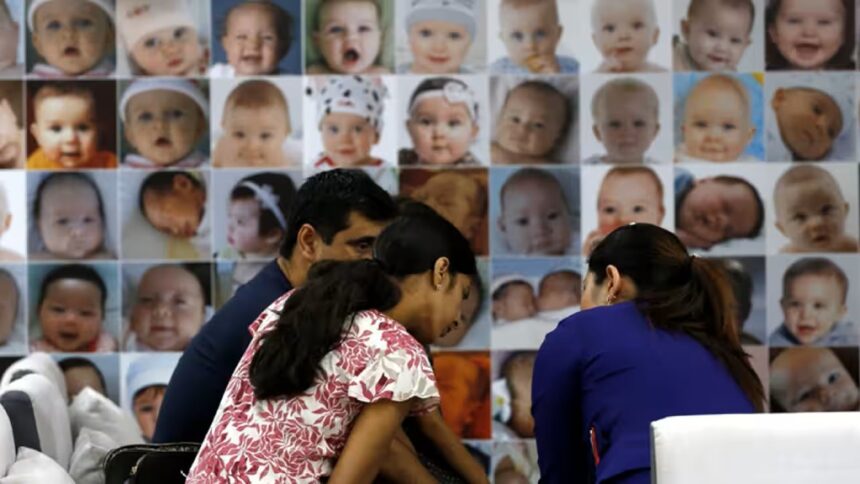In response to the implementation of the equal marriage law, the Public Health Ministry is revising the surrogacy law and allowing international same sex couples to have surrogacy in Thailand.
Dr. Panuwat Panket, director-general of the Department of Health Service Support (DHSS), provided an update on Tuesday on the status of amendments to the Protection for Children Born Through Assisted Reproductive Technologies Act.
These changes aim to align with Thailand’s equal marriage and surrogacy laws. The revised draft has been submitted to the Minister of Public Health for review before being sent to cabinet for consideration with regards to surrogacy in Thailand.
The Marriage Equality Act defines “husband” and “wife” as “spouses,” and same-sex couples can now access surrogacy.
Concerns about responsibilities in child custody and guardianship, particularly in cases of separation, will need to be carefully considered, according to Dr Panuwat.
He stated that once the amendments are in place, foreign couples will be able to seek surrogacy, including bringing international surrogacy to Thailand. Under current law, only foreigners who marry Thais are eligible for surrogacy.
The revised law will also allow the export of embryos, sperm, or eggs back to the foreign couple’s home country under conditions set by the Surrogacy Act’s special committee on the Protection of Children Born Using Medical Assisted Reproductive Technology.
When asked about human trafficking and illegal surrogacy in Thailand, Dr. Panuwat stated that the amended bill would make surrogacy more transparent. This will increase accountability while also reducing underground activities, he explained.
Dr. Panuwat stressed that the amended version will only allow relatives of the intended parents to be surrogates. International surrogacy remains illegal, as is commercial surrogacy advertising.
Human trafficking and illegal surrogacy businesses will face harsher penalties.
He stated that the amended bill suggests longer prison sentences and higher fines, while offenses committed outside Thailand will be treated as if they occurred within the kingdom.
Dr. Panuwat stated that recent studies show a growing interest in surrogacy in Thailand, particularly among single women who want biological children without becoming pregnant.
Surrogacy in Thailand
Surrogacy in Thailand has a complicated history shaped by shifting laws and regulations. It was once a popular destination for commercial surrogacy due to lower costs and fewer restrictions.
However, in 2015, Thailand banned commercial and International surrogacy for foreigners after widely publicized cases raised ethical and legal concerns. The new surrogacy laws only allow altruistic surrogacy for married Thai couples, and the surrogate must be a blood relative of one partner.
This legal shift was meant to protect surrogates and prevent exploitation, but it also closed doors for international clients seeking services.
While regulated altruistic surrogacy is still possible within Thailand, strict requirements make access limited. The changes have driven many foreigners to look elsewhere in Asia or abroad, although some still try loopholes, which can lead to legal trouble.
Prospective parents and surrogates in Thailand must now navigate a highly restrictive environment that prioritizes ethical concerns over accessibility. Always consult with legal specialists if you’re considering surrogacy in Thailand to avoid serious risks.
Related News:
Swedish Man Conned By Thai Woman into Bogus Marriage

Geoff Thomas is an award winning journalist known for his sharp insights and no-nonsense reporting style. Over the years he has worked for Reuters and the Canadian Press covering everything from political scandals to human interest stories. He brings a clear and direct approach to his work.














